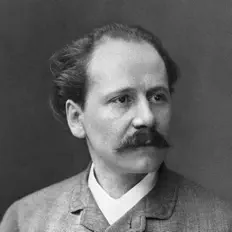
Classical
England
Ralph Vaughan Williams
Ralph Vaughan Williamsのトップソング
Ralph Vaughan Williamsの他のアルバム
Ralph Vaughan Williamsについて

出身地
Down Ampney, Gloucestershire, England
誕生日
1872
ジャンル
Classical
A champion of both rural English folksong and Tudor music, Williams effectively forged a national style from those sources. Born in Gloucestershire in 1872, he was brought up on the European mainstream—a diet of Handel, Mendelssohn, and Brahms. His rediscovery of old and almost forgotten elements of his nation’s music first bore fruit while editing The English Hymnal (1906): He introduced both folk songs (he transcribed many from the singing of agricultural workers) and neglected Tudor melodies, as well as composing several hymns inspired by those sources. Elements from further afield—fresh orchestral colors discovered through Ravel (with whom he studied in 1907–08) and the idealism and mysticism of poet Walt Whitman (whose work features in 1909’s A Sea Symphony and 1936’s Dona Nobis Pacem)—brought his individual style and sensibility into sharper relief. His music’s typically wistful modality was first fully realized in Fantasia on a Theme by Thomas Tallis (1910). While his popular The Lark Ascending (1914) reflects his love of the English countryside, a tougher, more vigorous side is revealed in his choral Sancta civitas (1925), the Blake-inspired Job (1930), and his ferocious Symphony No. 4 (1934). In his late sixties, Williams started a successful career as a film composer, culminating in Scott of the Antarctic (1948). He died in 1958, just months after attending the premiere of his Symphony No. 9.
Ralph Vaughan Williamsに似た曲やアーティスト
Ralph Vaughan Williamsに似た他の音楽やアーティスト(たとえばDanna Harkin、 William Croft、 Giuseppe Turcoなど)をもっと見つけましょう。




![Ralph Vaughan Williams, John Leavitt, The Baylor A Capella Choir & Brian A SchmidtのGreensleeves (feat. The Baylor A Capella Choir & Joseph Li) [Satb]を聴いて、歌詞やミュージック ビデオなどをチェックしましょう。 Ralph Vaughan Williams, John Leavitt, The Baylor A Capella Choir & Brian A SchmidtのGreensleeves (feat. The Baylor A Capella Choir & Joseph Li) [Satb]を聴いて、歌詞やミュージック ビデオなどをチェックしましょう。](/mkimage/image/thumb/Music122/v4/09/3b/f8/093bf897-6ad0-819d-2975-081d705c55a7/5056032366954.png/75x75bb.webp)













































































































